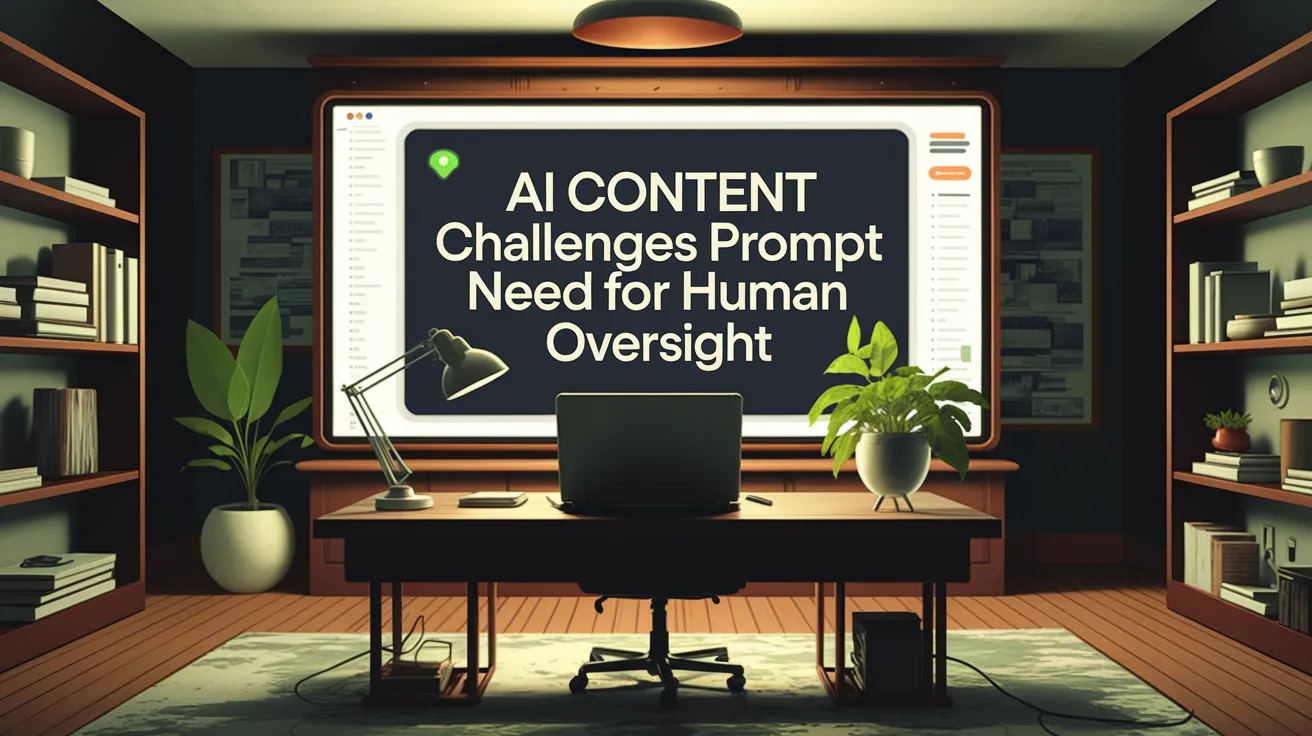AI Content Challenges Prompt Need for Human Oversight

In an unexpected twist, Sarah Skidd, a product marketing manager, has discovered that her skills are in higher demand than ever due to issues arising from AI-generated content. Approached by a content agency in May, she was tasked with overhauling generic website copy produced by an AI for a hospitality client. Instead of saving costs, the process resulted in subpar text requiring significant rewriting, highlighting that the initial AI tools had failed to deliver compelling material.
Realities of AI-Generated Content
Ms. Skidd described the AI-produced copy as “very basic” and lacking intrigue, working over 20 hours on revisions at a rate of $100 per hour. Interestingly, she holds a positive view of AI, emphasizing its potential to assist those with difficulties in writing, such as her dyslexic family members. However, the broader trend of professionals like her stepping in to correct AI’s shortcomings is notable; she suggested that many writers are now focusing primarily on addressing AI-generated content issues.
Challenges Faced by Businesses
Sophie Warner, co-owner of a digital marketing agency, also shared her experiences. Over the past months, she has seen a spike in requests from clients who sought quick fixes from AI but ended up causing technical issues, such as website crashes due to improperly implemented AI suggestions. A specific instance involved a client whose reliance on ChatGPT for task instructions led to significant downtime and financial loss, demonstrating the risks of out-sourcing problem-solving to AI without proper oversight.
AI Limitations and Misconceptions
Experts like Prof Feng Li from Bayes Business School argue that many businesses have an overly optimistic view of current AI capabilities. They advise that AI’s inherent limitations, such as the tendency to “hallucinate” or generate irrelevant content, necessitate human oversight. Companies have reported costly mistakes from AI outputs, underscoring the importance of professionals in ensuring quality and relevance in digital content.
A Global Perspective on AI’s Role
Globally, copywriter Kashish Barot is contending with similar challenges while working with US-based clients. Despite the accelerated speed and accessibility brought about by AI tools like ChatGPT, she notes that quality copywriting requires time, care, and a nuanced understanding that AI systems struggle to replicate. This further reveals that clients may develop unrealistic expectations regarding the capabilities of AI.
The Need for Strategic AI Implementation
Many organizations are diving headfirst into using AI without adequately strategizing their implementation or recognizing potential pitfalls. Prof Li urges businesses to evaluate their data governance and technical infrastructure before adopting off-the-shelf AI tools to avoid costly missteps. OpenAI acknowledges that while ChatGPT can assist with tasks, results depend on user input and the specific capabilities of each model, reinforcing the idea that human expertise remains vital.
Balance of AI and Human Expertise
Although there are concerns regarding the evolving capabilities of AI, professionals in the industry, like Ms. Warner, maintain that AI’s advantages do not replace the value of human intuition and contextual awareness. While it can provide quick and inexpensive options, the lack of personalization in AI-generated outputs may actually undermine brand reputation and effectiveness. Thus, incorporating AI tools should be balanced with the irreplaceable insights and expertise that human professionals bring to the table.